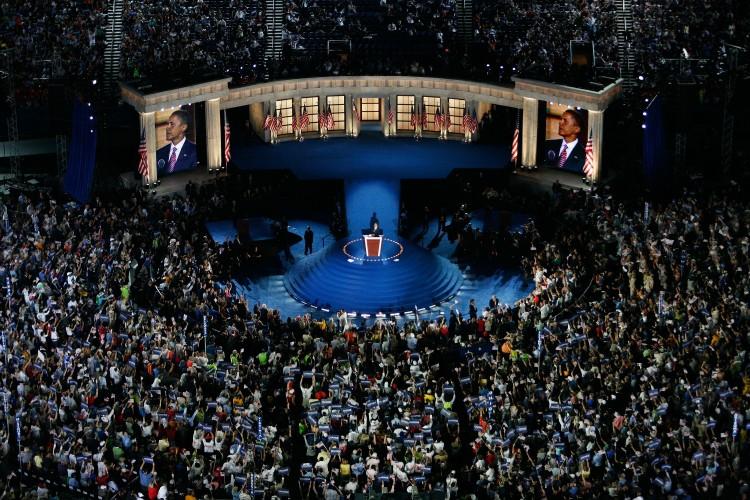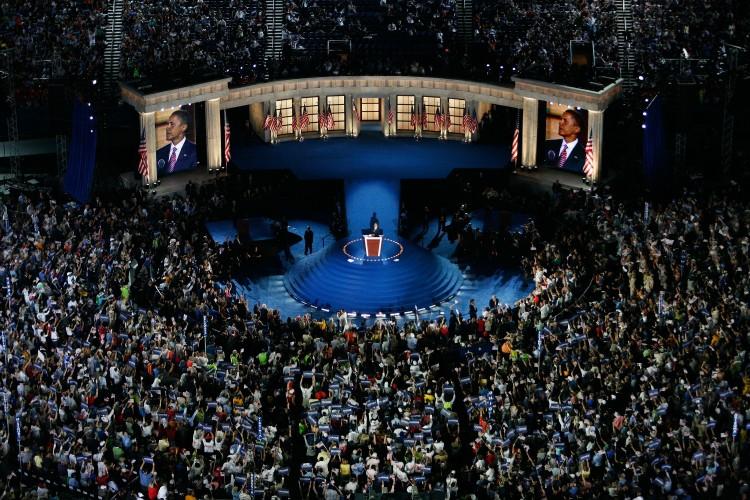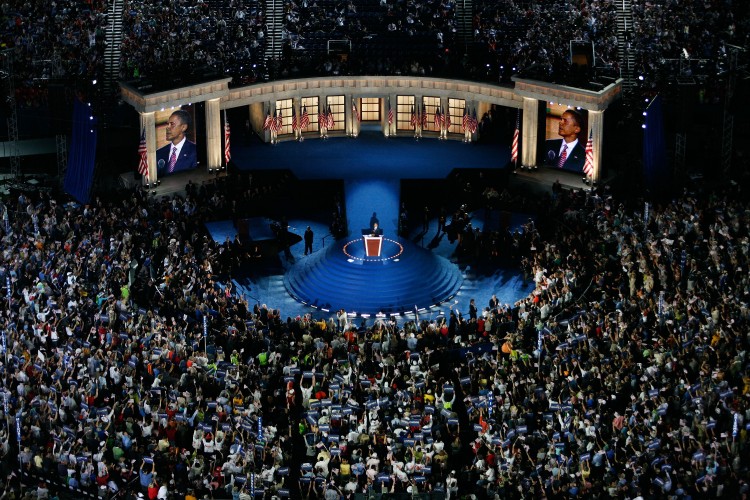WASHINGTON—The Capitol may appear to be running on cruise control as Congress takes its annual five-week summer recess, but the temperature of U.S. politics will rise as Republicans and Democrats move toward the national conventions at the end of the month.
Public attention to the conventions this year will be particularly intense as the contest between President Barack Obama and Gov. Mitt Romney is close, according to Dr. Seth Masket, associate professor of political science at the University of Denver.
“The election will probably just be decided by a point or two, and we know the conventions can actually move the polls in one direction or another,” said Dr. Masket to The Epoch Times.
The effect of the conventions may be temporary, he added, “but given how close things are, that kind of effect can, at least in the short-run, make a pretty big difference.”
Both parties will hold their conventions in the conservative South this year, within a week of each other.
The Republican National Convention (RNC) will be held in Tampa, Fla., over three days from Aug. 27 to 30. A high-profile lineup of speakers was announced on Monday, including former U.S. Secretary of State Condoleezza Rice, 2008 presidential candidate Sen. John McCain (R-Ariz.), former Gov. Mike Huckabee (R-Ark.), former Sen. Rick Santorum (R-Pa.), and Gov. Jeb Bush (R-Fla.).
The Democratic National Convention (DNC) will take place in Charlotte, N.C., over two days on September 4 and 5, one week following the RNC. Former President Bill Clinton will speak along with firebrand Elizabeth Warren, the Senate contender for Ted Kennedy’s long-held Democrat seat in Massachusetts, which went to Republican Scott Brown in a shock loss in 2010.
First Lady Michelle Obama, whose approval rating topped 71 percent according to a CNN poll taken in May, will also speak along with a rising star from the Latino community, popular San Antonio Mayor Julián Castro.
Conventions Important
National conventions in the United States take place every four years, in line with presidential elections. Each state sends delegates to vote on or confirm their party’s presidential and vice presidential candidates.
The party platform, a plan for the next four years, is also laid out, but the details are overtaken by hype as thousands join in on the political extravaganza. With millions of dollars spent in production, hugely energized crowds, and wide television coverage, the conventions have been described, somewhat facetiously, as ‘coronations.’
Despite the hype, John Hudak, political analyst with the Brookings Institution, says national conventions play an important role in the lead-up to the general election.
“Generally, what conventions are about is firing up the base, raising money, and about organizing the party in the final 10 weeks before the elections,” said Hudak to The Epoch Times.
Choosing speakers is critical, as the choice is a way of uniting a diversity of views within a party. It is also challenging.
“Because you have to satisfy so many constituencies ... the money of the party, the core, the base of the party, and then also appeal to swing votes and to do so on prime-time television, you really need to balance who speaks, when they speak, and what they speak about,” Hudak said.
Balancing Old and New
Both parties are inevitably keen to exhibit the experience and wisdom of older representatives, the depth of the party and what it stands for, as well as fresh faces looking forward. This is evident in both parties’ choice of speakers this year.






